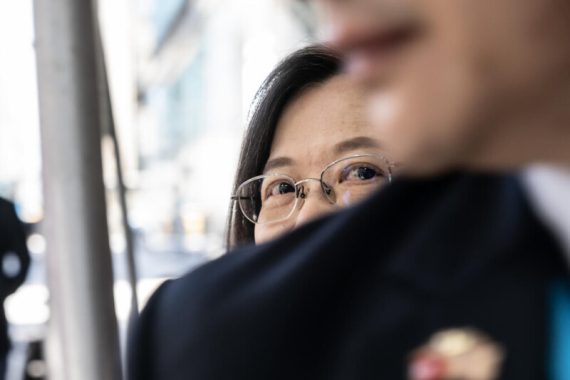T
he United States’ intense engagement in Taiwan in order to curb China, with which it competes not to lose its global leadership, encircling the latter in the Indo-Pacific, attracts the close attention of the entire world. The escalation of the crisis and the direct attempts of the parties to the dispute to engage in war resemble a disaster scenario for the whole world.
At this point, putting aside the possibility of a direct war between the U.S. and China over Taiwan, with the two great powers having nuclear weapons, it is likely that the U.S. will respond to a possible Chinese operation against Taiwan by increasing its support for Taipei, thus wearing China out. What attitude will European countries have in the event of a Chinese invasion of Taiwan?
Considering the UK’s long-standing special relationship with the U.S., London’s policy towards Taiwan is more important than other European countries. In this context, when we look at the current UK policy towards Taiwan, London does not recognize it as an independent state in accordance with the One-China policy and considers it a part of mainland China. At the same time, the UK maintains its informal relations with Taiwan through its trade and culture office in Taipei, the island’s de facto capital.
Less tensions in the Taiwan Strait
The UK is dissatisfied with the heating tensions in the Taiwan Strait as more than 300 British companies are present on the island and more than 180 Taiwanese companies are present in the UK with investments in various sectors. In this respect, the possibility that these investments will suffer if the tension on the U.S.-Taiwan-China front turns into a war disturbs London. For this reason, adopting a rational approach, the UK is in favor of solving the Taiwan issue through dialogue.
London intends to continue its established policy on the issue, as clearly expressed in a report published by the House of Commons in February of last year. Yet, according to the same report, the UK also supports Taiwan’s participation in international organizations as an observer member. Thus, for the time being, the UK complies with China’s red line regarding Taiwan and is far from adopting an approach that could provoke Beijing; however, its support for Taiwan’s membership in international organizations causes unease in China.
On the other hand, there is a strong expectation that if China launches a military operation against Taiwan, the U.S. will support Taiwan, and the UK will follow in the United States’ footsteps. This expectation must be viewed in light of the special relationship between London and Washington. First, the social, cultural, political, and economic seeds of today’s America were planted by the UK. For this reason, the political relations between the two countries have been shaped based on mutual trust and common interests. As a result, Europeanists, who favor a self-sufficient Europe that is independent from the U.S., perceive the UK as the United States’ European arm. In this spirit, France, the pioneer of this European camp, prevented the UK’s membership in the European Union until 1973.
Recommended
The UK as a functional actor between Taiwan and China
In addition, the UK transferred its role as a dominant actor in global politics to the U.S. after World War II. Since then, the UK has equated the power of its successor, the United States, with its own and has taken the side of the U.S. in almost every issue that has occupied the agenda of global politics. So much so that the UK has provided the U.S. with the greatest support both in theory and practice in Afghanistan and Iraq, which has had tremendous impacts on regional and global politics for years, and has acted together with the U.S. in the Syrian and Libyan crises. The U.S. included the UK, its most reliable European partner, in the AUKUS military alliance, which it formed with Australia two years ago in order to counterbalance China in the Indo-Pacific. This development seriously damaged the U.S. and UK’s common relations with France and made China very uncomfortable.
In other words, the UK will act as a functional actor contributing to the securitization process of the Taiwan issue by siding with the U.S. In this respect, London will probably send financial and military aid to Taiwan, similar to the support it provided to Ukraine following the Russian invasion. In the same context, UK Prime Minister Rishi Sunak noted at the G-20 summit held in November last year that “China poses a systemic challenge to UK values and represents the biggest state-based threat to our economic security. We will consider sending arms to help Taiwan to defend itself in the event of an attack from Beijing.”
In conclusion, on the one hand, the UK does not follow a policy that will directly confront Beijing on the Taiwan issue and does not want the tension in the region to grow further, taking into account the mutual investments in Taiwan and Britain. At the same time, the UK does not hesitate to signal that if China attempts a military intervention against Taiwan, it will follow the U.S. and support Taiwan in accordance with its traditional Atlanticist foreign policy.





